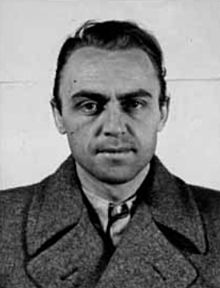
THE MYTH OF THE FAKE GERMAN ATTACK ON THE GLEIWITZ RADIO STATION
The German-Polish crisis lasted from October 1938 until September 1, 1939, and involved an extensive exchange of notes between the Germans, the Poles, the British, the Italians, and the French. Voluminous records of these attempts at negotiation still exist, intact, and there is no discrepancy between them. Most of the problems involved Polish refusal to recognize the rights of the various national minorities in Poland -- not just ethnic Germans, but Ruthenians, White Russians, Czechs, Jews, and Ukranians, etc., for twenty years. Hundreds of thousands of ex-Polish Ukranians emigrated to Canada, became British subjects, and continued to file complaints with the British government. These problems were very well known and received extensive publicity throughout the 1930s. The German attitude was that if the problems involving Danzig, the Corridor, and the minorities were not solved, Germany would be compelled to resort to war. The German attack date in 1939 was postponed no less than three times to give the Poles a chance to negotiate. In each case, they refused. Even after the initial German attack, on September 2, 1939, Hitler offered to stop his armies right where they were, on the spot, if the Poles would negotiate (which was extremely dangerous, because if the Poles had done so, and had then stalled until the beginning of the rainy season, the German army would have been nearly immobilized by mud; there were no good roads in Poland). The British refused, demanding unconditional, unilateral German withdrawal, with no concessions or negotiations in return. So Hitler went ahead, the British involved their colonies and dominions while attempting to involve the United States, and 50 million people were killed. The "Gleiwitz radio station" was NEVER MENTIONED AT ANY TIME IN 1939. The claim, therefore, is that for six years, nobody knew what the whole war was about, until 1945, when somebody named "Alfred Naujocks" signed an "affidavit" at Nuremberg, and disappeared forever! He never appeared as a witness for cross-examination. It is obvious that this tale was invented to obfuscate or conceal the real causes of the war. Why fake a trivial incident if you're never going to mention it when you go to war? This is a typical example of Nuremberg "evidence".
Best sources: KRIEGSURSACHE -- KRIEGSCHULD, by Helmut Schröcke; DER KRIEG, DER VIELE VÄTER HATTE, by Gerd Shulze-Rhonhof; and THE FORCED WAR, by David Hoggan. This information is also widely available elsewhere.
http://archive.org/details/HitlersWar-WhatTheHistoriansNeglectToMentiontestVersion
A recent biography of Naujocks, Hitler's Gangster: The Extraordinary Crimes of Alfred Naujocks, by Tim Newark, calls him a "murderer, kidnapper, spy, forger, pimp", but, of course, we should believe everything Naujocks says, especially when he only exists as a signature at the bottom of a "sworn statement", probably signed under duress, and certainly to obtain some material advantage (perhaps, escaping the hangman's noose or a lengthy term of imprisonment). Such credibility you never saw in your life.

"Murderer, kidnapper, spy, forger, pimp—Alfred Naujocks was all these"